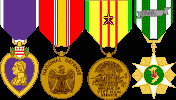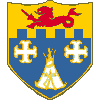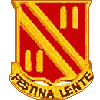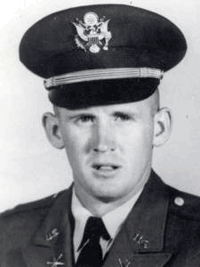
|
||
FRED BRAGGB BTRY, 4th BN, 43nd Artillery - attached to 1/12th Infantry Etna, Ohio |
  |
|
PERSONAL |
||
| Last Name: | Bragg | |
| First Name: | Fred | |
| Middle Name: | G | |
| Home of Record (official): | Etna |
|
| State (official): | OH | |
| Date of Birth: | April 21, 1942 | |
| Sex: | Male | |
| Race: | Caucasian | |
| Marital Status: | Single | |
MILITARY |
||
| Branch: | Army |  |
| Rank: | 1LT |
|
| Serial Number: | 05419338 | |
| Component: | Reserve | |
| Pay grade: | O-2 | |
| MOS: | 1193 Field Artillery Unit Commadcer | |
| Awards: | DIS, PH, Bronze Star | |
| Unit: | B TRTY, 4th BN, 42nd Arty Rgt, 4th Inf Div. - Was with Bravo Company at time of death. | |
ACTION |
||
| Start of Tour: | Saturday 07/23/1966 | |
| Date of Casualty: | July 12, 1967 |
|
| Age at time of loss: | 25 | |
| Casualty type: | Hostile (A1) died outright | |
| Reason: | Gun, small arms fire (Ground casualty) | |
| Country: | South Vietnam | |
| Province: | ||
| Location: | La Drang Valley, South Vietnam | |
| The Wall: | Panel 23E Line 055 | |
| Return to Casualty Page | ||
| Fred G. Bragg, Jr., attended BYU during his sophomore year of college, 1960-1961, and he had also applied to return in the fall of 1967. First Lieutenant Bragg died while serving as an artillery forward observer for B Btry, 4th Bn, 42nd Arty Rgt, on July 12, 1967. On that day the enemy forces had managed to pin down his company with small arms and mortar fire. When the company commander was killed Lt. Bragg took charge and was able to regroup them into a more secure and defendable position. Moving bravely among his men, he boosted their moral by giving them the needed encouragement. Lt. Bragg was injured in this effort but continued to direct deadly fire on the insurgent forces. He continued to do this until a mortar round took out his last existing radio. When the enemy forces began to advance on Lt. Bragg and his men, Lt. Bragg stayed in the open to defend his troops and poured round after round of deadly fire into the advancing enemy force. Due to his actions on that day First Lieutenant Fred Bragg was awarded posthumously the nation's second highest medal, the Distinguished Service Cross. Fred G. Bragg served his country for three years and was due to return home from his tour of duty soon after he was killed. Lt. Bragg also earned several other medals, not least of which was the Bronze Star and the Purple Heart. One newspaper article cited a commendation as having said that he had received the awards for "masterful precision" in directing supporting artillery fire into enemy positions. Lt. Bragg was a true credit to his family, his faith, the U.S. Army and the United States of America. | ||
